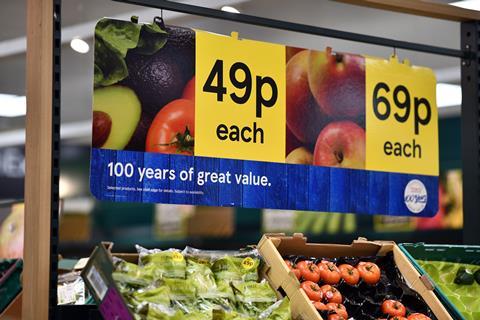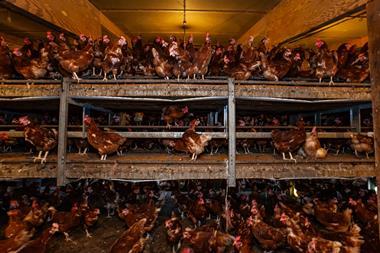
Tesco has backed calls for a government ban on packaging for fruit and veg, saying it would create a “level playfield field” in the war on plastic.
The stand by the UK’s biggest supermarket is a major breakthrough for the government’s environment advisers Wrap, who The Grocer revealed last week are calling for ministers to introduce a ban already brought into force in countries including France and Spain.
Wrap has warned unless the government introduces regulation, the UK’s pioneering Plastics Pact faces missing its target of 30% of fruit and veg being sold loose by 2025 – even though that itself is a watered down target from its original aim of 80%.
Tesco said it would welcome “effective government intervention on produce packaging removal.”
“This should start with products we think are most achievable – for example where multiple retailers share the same supplier,” it added.
“Government intervention will ensure change is made at scale and create a level playing field, where packaging changes will not put any one retailer at a competitive disadvantage,” said Tesco, which has removed 4,500 tonnes of packaging from its products since 2019.
Wrap is due to present its plans for legislation to the government in the spring, but claims a whopping 8,800 tonnes of plastic packaging a year could be taken off the market if supermarkets sold just three products loose: apples, bananas and potatoes. Wrap insists another 20-plus products could routinely be sold loose, which it claims would slash food waste as well as plastic use.
Whilst none of the other supermarkets The Grocer spoke to went as far as backing regulation, several claimed to be making good progress in moving towards a greater proportion of loose sales, despite Wrap’s figures showing less than one in five fruit and veg products were sold loose.
However, they warned legislation could have “unintended consequences” if it was too heavy-handed.
A spokesman for Waitrose, which sells more than 100 lines of loose products, said it was currently revising its policy when it came to a ban, adding: “All retailers have a responsibility to eliminate unnecessary packaging, and make sure any items used are easily recyclable.
“We also need to see collective action, with retailers working together to find solutions on a national and global level.”
A Lidl spokesman said: “Continued collaboration across the sector is key to progress, and whilst we support positive developments that help the industry to meet targets, they must be realistic and backed by robust evidence to avoid unintended consequences such as an increase in unnecessary food waste.”
Several other supermarkets privately raised concerns over the possible impact of a ban.
“Removing plastic packaging on fresh produce can increase the risk of product damage, such as bruising and exposure to pests,” said one source.
A separate supermarket source said: “We face various barriers to removing packaging; food waste, need for information on product barcodes for self-scan, and also simply customer preference.”



















No comments yet